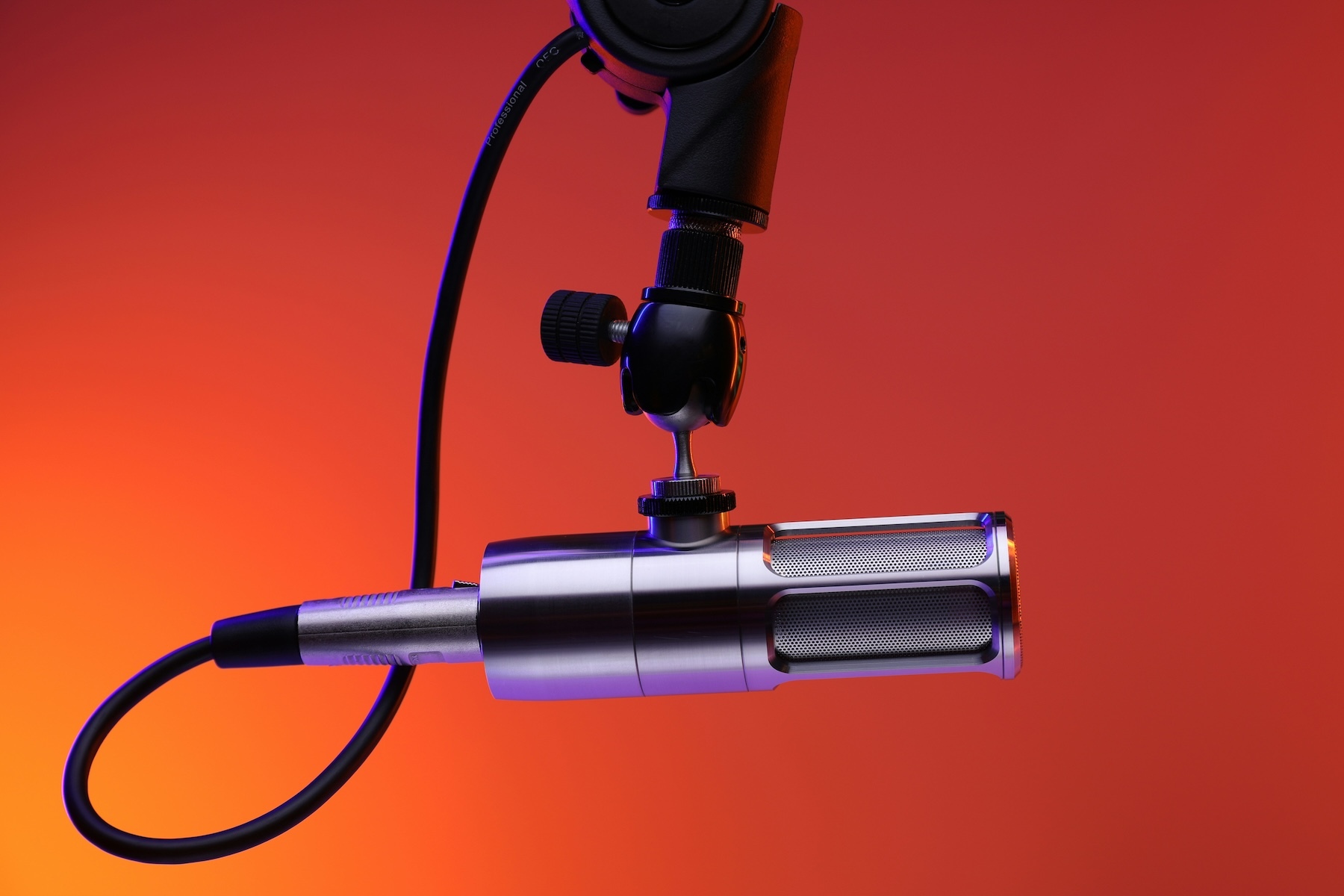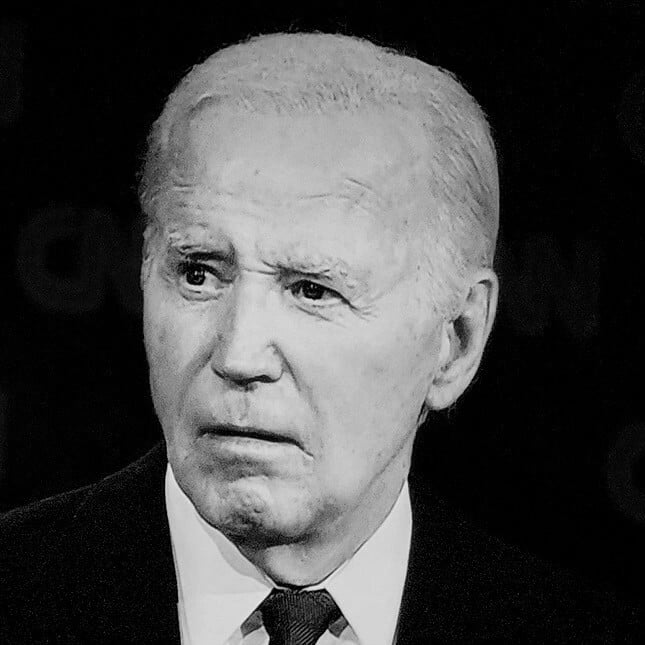[…] being able to say, “wherever you get your podcasts” is a radical statement. Because what it represents is the triumph of exactly the kind of technology that’s supposed to be impossible: open, empowering tech that’s not owned by any one company, that can’t be controlled by any one company, and that allows people to have ownership over their work and their relationship with their audience.
What podcasting holds in the promise of its open format is the proof that an open web can still thrive and be relevant, that it can inspire new systems that are similarly open to take root and grow.
Whenever you get your podcasts, is it’s not RSS, it’s not podcasts.
It’s only radical if it is not preceeded by “Apple podcasts, Spotify,…”
I agree and have similar hopes for the future of podcasting, and the open web at large. The issues I see out there is that the funding for the majority of podcasters I listen to comes from Patreon support.
I like the concept of Patreon, but dislike how essential it has become to the podcaster’s livelihood. The only alternatives seem to be to sign with platforms like Spotify, or, in the case of blog writing, Substack. Obviously, I don’t consider these to be better alternatives to Patreon.
I’ve been wondering for a few years now how to create a better alternative to Patreon that is closer to the sentiments echoed in the business model of Nebula or some sort of nonprofit or community driven alternative to Patreon as it has basically just become a corporate middle man between podcasters (and content creators as a whole).
The RSS feed has been the greatest boon left to the internet by the saint, Aaron Swartz. But how to financially support the creators of these pieces of media on a decentralized platform eludes me. I just know relying on a singular entity like Patreon is probably not sustainable in the long term.
The problem with Nebula is that it is a paywall, something that is considered to be the most evil by some on Lemmy.
At the end of the day, content is paid for by getting everyone to pay, asking some to pay, advertising, or the creator is willing to do it for free as a hobby.
Nebula is a creator run coop, I believe. I’m happy to pay for that, and do.
If only we didn’t have gigantic centralized podcast hosts like Libsyn that also platform Neo-Nazis…
When people push listening on Spotify even though the podcast is available everywhere else I roll my eyes.
Well plenty creators push product X, Y or Z. Whether that product is in itself also the hoster of the media you’re listening to… I dunno. Just another ad to me, I don’t really care about the details any more at that point. Sadly no sponsorblock for podcasts yet, AFAIK.
Hey, I get that. Honestly I do not even think they push Spotify because they’re paid to do it. The ones I’m listening to, that is. They do it because they like the service and that’s fine. It’s just sad to feel like an afterthought. The adverts I’m fine with. I can just skip them.
Whenever I’m talking with someone about my podcast and they ask, “can I find it on Spotify?” a little part of me dies.
Like, yes it’s available on Spotify, because it’s available everywhere. But I strongly dislike what Spotify tried to do to podcasting, and there are much better apps out there.
I use spotify daily like most people these days. I’m not married to it, but it is easy to use (most of the time) and has the best selection of everything (for the most part). What app is a better use of my time for music and podcasts?
If you like feature rich apps then I recommend Podcast Addict.
Is it available for iOS? The native podcast app is unbelievably confusing.
I don’t personally use iOS, but some friends of mine have given good reviews about Podcast Republic - note that it has a one-time ads free unlock to it.
I like using AntennaPod for podcasts and Spotify for music.
deleted by creator
I don’t understand their podcasts. It isn’t sectioned off or organised in any kind of way.
I tried it out and still regret it, because even after unsubscribing from all of the podcasts I still get notified of new episodes all the time.
deleted by creator
As a Spotify user for most of its history, I think there are some UI and UX issues to resolve, but I literally have never had the experience you describe here.
deleted by creator
I feel ya. I’m not sure why you’re having that much trouble and I’m not. I tried a couple podcasts, hated it, and stopped seeing recommendations pretty quickly. I get what you mean about so many recommendations though, it’s kind of annoying sometimes.
One of my main motivations for cancelling my Spotify subscription was their insistence on capitalising on podcasts. They have a perfectly fine business model with music, why do they need to ruin podcasts?
Because they don’t have a perfectly fine business model. They get squeezed hard by both the oligarchs of music publishing UMG, Sony Warner who negotiate the price for the music. And from the other side by the tech giants google and apple who can cross service subsidize their own streaming.There exists essentially no space for them to make any profit in streaming music. So they have to go other places.
The only reason they’ll probably exist for the foreseeable future is because the rights holders are able to use Spotify to have more negotiating power against Google and apple.
I left when they paid Joe Rogan money
I didn’t cancel because I think the rest of the service is fantastic, but I haven’t touched the podcasts. Because of the politics.
I thought of starting Spotify subscription but they keep recommending songs by artists that I have blocked. Fix your shit, Spotify.
Yeah the locking down podcasts for exclusivity to me is really fucking toxic and totally counter to what podcasts used to stand for. Really pissed me off when Gimlet went Spotify only and Reply All was no longer available elsewhere. Very anti consumer.
I agree that the Spotify exclusive podcasts suck. However I am 99% sure reply all never went Spotify exclusive. The show just kinda imploded after the test kitchen series. I was listening up till the very end on normal podcast apps.
Easy to do when it’s just audio files with no user interaction though. Neat that it’s continued existence in this manner at least, even if the big companies have steered toward trying to be the podcast platform.
All the centralisation in podcasting is the content delivery network (where ads are placed for the commercial ones). Where the feed is hosted it’s fairly irrelevant.
The reason companies want to control the podcast networks is because of targeted ads. They want to inject the ad at the time of downloading to personalize the ad to the person it thinks is listening. That’s the best kind of advertising in their eyes. They can’t do that process without owning the network or at least having some stake in it.
If those Joe Rogan fans could read, they would be very upset right now!
They’re paying him $250M starting this year. I think it’s about to be exclusive to Spotify again.
Everything is better when it ends with a fact check.
Even sex?
Especially sex
“Did that just happen?”
I guess it’s better than hearing “So that’s what you consider average?”
“Time for a fact check, baby.”
Feelings are not facts. But cavities are.
For these guys? Yes! Probably about AIDS or something.
deleted by creator
Yeah, it’s much better for everyone except the rent-seeking company… And it isn’t even bad for the rent-seeker, they’re just deprived of the gains they would obtain from harming the ecosystem by fragmenting it.
I feel him selling out turned me off ever wanting to watch it. He didn’t need the money, he was already super well off. So he just showed that he didn’t value his listeners, he knew he would lose some but didn’t care.
Compared to my favorite podcast that offers people to email him if they can’t afford the paid stuff because he just wants people to be able to listen.
Agree. I mean I dunno if I’d be able to say no to $100 million even if I was already wealthy, so I don’t want to make it too black-and-white… But it definitely did harm, and I think it’s fair to describe it as selling out.
Who’s your favorite podcast? They sound rad.
Tangentially Speaking by Chris Ryan.
He interviews interesting people, some famous, most not. The latest episode was with a guy he happened to meet at a party and thought he had an interesting story.
As the name implies he is very happy to go off on tangents, so the episodes can end up in topics you never would have guessed from the guest description.
Word of warning he does tend to talk for about 30 minutes at the start of every episode. I personally enjoy it but I know others who it annoys.
Did anyone listen to Adam Curry’s Daily Source Code podcast? I remember him being very excited about the possibility of escaping the gatekeepers of traditional media. Is i remember correctly, he was a major and important proponent of the open nature of podcasts.
Podcast Addict and Podcast Republic ftw!
not so fun fact: both of these apps actually just search iTunes
this whole article feels disingenuous to me. platforms where you can search for things by name without specifying who published it, cannot exist unless one (or a small handful) of organizations does all of the publishing. not unless search engines communicate with each other – and since apple is one of the major players I can promise you they do not.
let’s face it. 99% of podcasters use a monthly paid service that hosts their media files and submits them to the small handful of podcast search engines that exist, maybe even gives them a boost in the algorithm or whatever. heck, most first party podcast player apps nowadays don’t let you plug in an arbitrary RSS feed – they make you use the search engine. if the podcast you want isn’t there, tough shit. I’m honestly baffled how anyone can talk about the world of public podcasts being open and radical when they’re like one industry cooperation away from supporting DRM
I have no idea where I get my podcasts; I hit Add Podcast in AntennaPod, it goes somewhere and I get a podcast subscription somehow. Can’t explain that.
AntennaPod (OpenSource) and I subscribe to RSS feeds. How else would you do it? Spotify? That crap can’t even reliably store where I paused last time.
Yeah, but the RSS feeds is the where er. Lots of podcasts only have ivoox, apple podcasts or spotify, and getri g their RSS, specially for older episodes, is absolute shit
As a devoted AntennaPod user, it works damn well.
Ooh. Nice! I hadn’t heard of AntennaPod before. It seems to have everything that I use in Pocket Casts except for trim silence. I will try it out for a while and see if I miss that. I do use it and it saves a lot of time. Still though, OSS is a big draw.
After reading your comment, I checked my Pocket Casts stats page and it looks like between the skipping, variable speed (1.5-2x), and trimmed silence (mad max), I save nearly 20% of listening time with the majority of that being the silence trimming.
Might be an outlier, but with daily podcast listening, trimming is important enough to keep me on Pocket Casts, even though AntennaPod is attractive given it’s open source nature.
You made me check. Since August 2018, I’ve cut about 1d using variable speed, and 1.5d using silence trimming. I’m only using mild at the moment, and have used medium before, but mad max was too much for my taste. But since I’ve listened for 83d, silence trimming is a <2% saving for me, so it might not mean much.
Edit: I do use it extensively specifically when catching up on the backlog of a podcast. So it probably accounts for way more during those times.
Sounds like my usage is just different to yours. I can’t remember why but I got accustomed to listening to audio at increased speed around a decade ago and slowly cranked it up to the point that now I can follow certain people’s conversations slightly higher than 2x. Only with voices and cadence I’m familiar with though. Any guests on a show can really throw me off.
The silence trimming aspect is a bit absurd honestly. It makes laughter sound almost all the same and robotic; you have to infer where comedic, dramatic, or thoughtful pauses in the speech are; and if there’s a more rapid fire back and forth in the conversation it can be tricky to follow. Although that last point doesn’t happen with podcasts where all the speakers record separately and it’s edited together to be coherent.
If you listen to a lot of shows, with hundreds of hours of episodes, it’s worth dialing up as much as you can stand. Then again, if I didn’t have two dozen podcasts with decades of backlog, I sure wouldn’t be listening at auctioneer pace.
upvote this wherever you get your federated content.
deleted by creator
Email newsletters kinda are too. You use a service to send them, but the list itself remains yours and can be moved around. No algorithm bullshit in your way. They’re making a comeback lately it seems.
I always though it was a jab at Spotify being all-powerful. Anytime you hear a commercial for a podcast, they always mention Apple Podcasts first, then maybe Stitcher gets a name-drop, but they NEVER say to listen to the podcast on spotify.
They’re not really mentioning stitcher any more
You can tell how frequently I listen to podcasts lol used to a lot but I guess I’ve scaled back a little in the last year
Stitcher actually got shut down last August after the SiriusXM acquisition.
…exactly the kind of technology that’s supposed to be impossible: open, empowering tech that’s not owned by any one company, that can’t be controlled by any one company…
Who is suggesting that such technology is impossible? The internet is literally exactly this, based on an open standard (Internet Protocol) which is not controlled by any proprietary group.
IP wasn’t the first computer networking standard to be developed, but its open nature made it accessible to any interested manufacturers and that made it the most successful standard.
Anyone suggesting that this “kind of technology” is “supposed to be impossible” is either ignorant or stupid, or both.
If IP was developed today, you’d be paying IBM or a similar corp royalties for every network adapter manufactured. Thats whats supposed to be impossible in today’s late-stage hyper-capitalism web.
IBM tried that in the 60s, 70s and 80s with their business mainframe systems, along with HP and several other manufacturers. Before IP gained prominence every major manufacturer had its own proprietary connection system they tried to sell, and the competition in the market was just as fierce then as it is now.
It didn’t work, the open model made all of the proprietary network systems obsolete.
The IP helped the Internet to establish. But once established we see trends to try to limit the very technology into propriety. Think of the Facebook internet access schemes that tried to make everything go through facebook. Think of the attempts to make priviledged and throttled websites based on what the ISP likes…
When Podcasts were new, the open standard was embraced, but now we see attempts to make them exclusive too. Just that they didn’t prevail yet.
Think of the Facebook internet access schemes that tried to make everything go through facebook.
You’re right that they’ve tried to do this and it’s ugly. But they’ve only been able to do it in places where they didn’t have to compete with an existing service, so I would argue that it’s successful only in a vacuum.
There are a lot of very successful businesses based around open source software. Open models are perfectly functional in the present. Their potential for success isn’t some relic of past idealism.
Unpopular opinion: The open core model is underutilized.
Who is suggesting that such technology is impossible?
Every business that could stand to make a buck from it being that way. But the author obviously meant in the current economic model we live under.
the current economic model we live under.
The internet isn’t exactly ancient technology. Do you think the ‘current economic model’ is significantly different from the 1970s? (and can you back up that conclusion?)
I don’t follow what you’re saying. The economic model we’re in has been around for hundreds, arguably thousands of years in most ways. What about it?
The author was assuming people would know that “impossible” doesn’t always need to be literal. Things are more often impossible because of established norms. That’s all.
The norms we are discussing here is that under capitalism, the norm tends to be trending away from free and open systems. Because where there is a buck to be made, there’s usually someone doing everything they can to make that buck and prevent the openness that would render them useless.
The economic model we’re in has been around for hundreds, arguably thousands of years in most ways. What about it?
And open source came into being inside of that model, and has grown and thrived since. So obviously, it’s not impossible.
The norms we are discussing here is that under capitalism, the norm tends to be trending away from free and open systems.
Right, this isn’t true. While certainly there are some businesses that try to restrict it, open systems grow and spread anyway. Open source is bigger and stronger than ever today. Open source software is so widespread that it’s a security concern for governments (look at the log4j fiasco). You interact with open platforms every day, even if you don’t see their names in commercials or on billboards (many of them don’t have to advertise).
I think you’re just being argumentative honestly. I don’t disagree with anything you’ve said really, I just take issue with the intentional reading of “possible” as “technically possible”.
Yeah OSS and a lot of open systems are huge and great. They will continue to grow. But as we both know, business will continue to be intentionally shitty. Exhibit A: world’s first trillion dollar company, Apple, thrives mostly due to the proprietary ecosystem they’ve put in place. It’s a “winning” strategy, as much as I loathe it.
We’re not disagreeing on anything but wording here.
OK, but I’m not arguing for the sake of argument. What I take issue with is the overly negative point of view that isn’t justified by the reality of the current technology market. It’s limited, depressive and ultimately self-destructive.
Perspective matters. Money isn’t the only measure of success. Internet infrastructure is basically Linux, nginx and Apache - seriously, apart from user endpoints it’s pretty much all open source - and the most common endpoint OS is Android so also open source. The idea that open systems aren’t as successful as proprietary ones doesn’t reflect reality, it’s a projection of a limited point of view onto reality (it only seems true if large portions of the current technology market are ignored).
I get where you are coming from now. Thanks for elaborating.
I can see where you’d get that it’s an overly negative point of view, but I’ll be damned if companies like Apple don’t give me so many reasons to think that way :(
I think what the author meant was that it’s impossible in the capitalist marketplace.
Joe Rogan is probably a good anti-example. His podcast (as I understand it anyway) is only available on Spotify. But Conan O’Brien, the Office Ladies, and even The West Wing Weekly (which hasn’t been producing in years) is still available, for free, on any podcast platform.
I think what the author meant was that it’s impossible in the capitalist marketplace.
Nonsense, the marketplace was also capitalist when the internet protocol was developed in 1974.
I’m also not sure I can agree with that it’s “a radical statement”. It is… not? Unless I misunderstand what others mean with
radicalin this context, but linguistically it should the form free of pre- and suffixes and qualifiers, no?So in this context, “wherever you get your podcasts” is… not very radical. That’d be not actually stating anything in regards to your podcasting platform, as it is in itself a qualifier for something else in that sentence, and hence removed.
It’s also not radical in the political sense of course, but I kinda figured that’s not what is being alluded to here anyways as it’d inherently not make any sense.




















